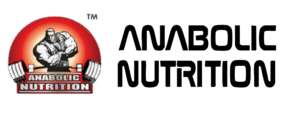Vitamin D plays a crucial role in maintaining overall health, from supporting bone strength to boosting the immune system. Yet, many people struggle to get enough vitamin D naturally. So, what’s the best way to meet your vitamin D needs through food sources or supplements? In this blog, we explore the importance of vitamin D, the pros and cons of obtaining it from food versus supplements, and how to ensure you maintain optimal levels.
Why Is Vitamin D Important?
Vitamin D is often called the “sunshine vitamin” because our bodies produce it when exposed to sunlight. It is vital for:
- Bone health: Helps your body absorb calcium, preventing osteoporosis and fractures.
- Immune support: Enhances your immune response and may reduce the risk of infections.
- Mood regulation: Linked to lower risks of depression and mood disorders. Muscle function: Supports muscle strength and coordination.
- Insufficient vitamin D levels can lead to fatigue, bone pain, weakened immunity, and increased risk of chronic diseases.
- Fatty fish: Salmon, mackerel, sardines, and tuna are rich in vitamin D.
- Cod liver oil: One of the richest sources, though it should be consumed carefully due to high vitamin A levels.
- Egg yolks: Provide modest amounts of vitamin D.
- Fortified foods: Many dairy products, orange juice, cereals, and plant-based milk alternatives are fortified with vitamin D.
- Limited sun exposure (due to geography, lifestyle, or skin protection).
- Older adults, who produce less vitamin D naturally.
- People with certain medical conditions affecting absorption.
- Those following strict vegan or vegetarian diets.
- Convenient and reliable source of vitamin D.
- Easy to adjust dosage based on individual needs.
- Helps prevent deficiency in at-risk groups.
- Food first: Getting vitamin D from natural foods provides additional nutrients and supports overall health.
- Supplement wisely: Use supplements to fill gaps or address deficiencies confirmed by a doctor.
Food Sources of Vitamin D
While sunlight is a primary source, certain foods naturally contain or are fortified with vitamin D. Key sources include:

Vitamin D Supplements: When and Why to Consider ThemGET EXCITED ABOUT
Supplements come in two main forms: vitamin D2 (ergocalciferol) and vitamin D3 (cholecalciferol), with D3 generally being more effective at raising blood levels.
When Supplements Are Recommended
Benefits of Vitamin D Supplements
Food Sources vs. Supplements: Which Is Better?
Ideally, a combination of moderate sun exposure, a balanced diet rich in vitamin D, and supplements when necessary ensures optimal vitamin D levels.





3 Comments
This is exactly what i was looking for, thank you so much for these tutorials
It would be great to try this theme for my businesses
What a nice article. It keeps me reading more and more!